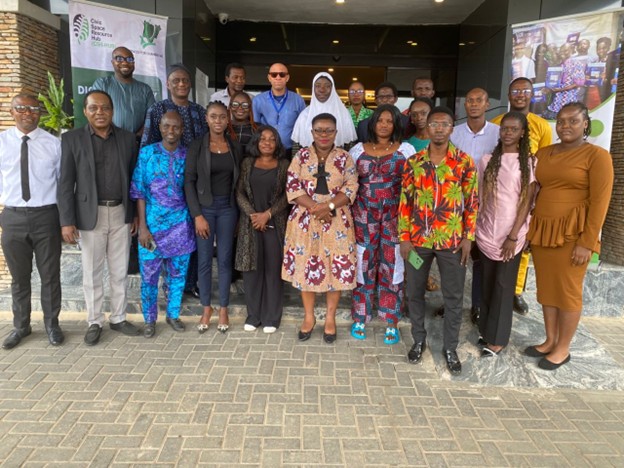By Rowland C. Amaefula
 Poised by the vision to comprehend the identity crisis in Nigeria, after having been accused of being ‘igbotic’ by a fellow native Igbo Language speaker who rather claimed strict descent from Ogwashi-Ukwu (Delta State), I was soon jolted by the fact that the other major ethnic groups loosely generalize, at will, both South Southerners and South Easterners as Igbos. Most probably, this was the situation in which Major Kaduna Nzeogwu – a native of Okpanam town, near Asaba in the present day Delta State – “who was Igbo in name only” (79), fired the first salvo for which Igbos were forced to wake into nuzzles of guns pumping out live ammunitions, indiscriminately! I have come to the bitter submission that ‘Igbo’ is merely a malleable geographical location, moulded into any shape of definition as desired by adverse politico-religious tensions. Indeed, this is about the major subtle contention in Achebe’s new book – the mass crucifixion of a people solely on account of their place of origin.
Poised by the vision to comprehend the identity crisis in Nigeria, after having been accused of being ‘igbotic’ by a fellow native Igbo Language speaker who rather claimed strict descent from Ogwashi-Ukwu (Delta State), I was soon jolted by the fact that the other major ethnic groups loosely generalize, at will, both South Southerners and South Easterners as Igbos. Most probably, this was the situation in which Major Kaduna Nzeogwu – a native of Okpanam town, near Asaba in the present day Delta State – “who was Igbo in name only” (79), fired the first salvo for which Igbos were forced to wake into nuzzles of guns pumping out live ammunitions, indiscriminately! I have come to the bitter submission that ‘Igbo’ is merely a malleable geographical location, moulded into any shape of definition as desired by adverse politico-religious tensions. Indeed, this is about the major subtle contention in Achebe’s new book – the mass crucifixion of a people solely on account of their place of origin.There Was A Country, a four-part non-fiction, is structurally remarkable for introducing a new genre into the literary firmament: a narrative that is laced with quotations from fictions, and its disparate parts interspersed with poems. The structure comprises Introduction, Parts I, II, III, IV, Post-Script, Appendices and Notes. Regardless of form, it is the intention of this writer to pay closer attention to not exactly the overall meaning of the book but the perceivable motivations of the author. This approach has become necessary due largely to the widespread misconstruction of the piece as a pre-meditated convocation of ethnic division that would eventually de-merge the loose unity of the Nigerian state.
Amid the boat-load of authorial dispositions derivable therefrom, it is imperative to point out that Achebe, in There Was A Country, does not pretend to be a sociologist, a political scientist, a human rights lawyer or even a government official. To this end, he rather states unequivocally that his “aim is not to provide all the answers but to raise questions and perhaps to cause a few headaches in the process.” Further, he charges Nigerians “to ask hard questions, in order to better understand (them)selves and neighbours” (There Was A Country 228). These are not wrong visions, in my estimation. However, some pestle-wielding antagonists (not critics!) are bent on subjecting these visions to a hideous subjective interpretation, which they would first flag off as objectivity. Sadly, even widely-acclaimed objectivity remains so only in the subjective mind of its proponents. Thus, Achebe’s vision continues to wriggle in all manner of interpretations.
Predictably, Nigerian masses eventually murdered the mission of the author! In a terrain where one encounters an incandescent truth whose rays throw off-balance one’s long-standing self-sanctimony, the dread of one’s own image then becomes ineluctable, nay! inevitable. The Nigerian ruling class foresaw their impending undoing in Achebe’s new book and thus, strategized a dead-on-arrival reception of it. Caught in the tragedy of ethnic and aimless wrangulations that define public discourses in Nigeria, therefore, the unthinking thinkers of clannish rulers supervised the miscarriage of the message and ensured the strangulation of same in their tribal fists. Comparable to this disaster is the fact that these tribal war-lords got the wind of the new book well beforehand and chose, as a subterfuge of dismantling the masses, to emphasize a half-page excerpt of the book – page 233 – that served their purpose, and unleashed successive ethnic blows to the rest of the country.
Regrettably, these self-anointed tribal leaders soon metamorphosed into ethnic demagogues, behind whom their kinsmen queued to echo divisive chants of whose origin and beyond-the-surface purpose they were oblivious. In due course, the healthy and critical debate the author innocuously proposed we ask ourselves was designated a volatile status – a charged rancour condemned by a teeming crowd of Nigerians, largely ordinary Nigerians, who have neither accessed nor assessed the text. Unfortunately, the verbal fisticuffs went haywire, to the very detriment of the ruled who suffer more the consequences of not having the knowledge to be gained from the questions of which they impoverished themselves. While their tribal warriors smiled for the success of their chicanery, the masses are thrown into an even deeper pit of poverty – poverty of the mind!
This disillusionment is sliding into depression in no slow pace. As a faithful proponent of revolution (in the Marxist fashion) as a harbinger of social order in Nigeria, I now find myself arm-twisted into acknowledging that, indeed, the atmosphere is pregnant with betrayals, counter-betrayals and super-betrayals. Roaring aloud is the need to contextualize the impending revolution, along tribal and religious lines – each one revolt against one, lest we have a terrible situation on our hands: a re-play of the hubbub that birthed the hackneyed phrase, ‘No Victor. No Vanquished’ – a mantra Soyinka, in The Man Died, describes as “a sedation of political understanding cunningly confected by those who know damned well who the vanquished were – no, not the Biafrans, but the deluded national polity, a people misled into making sacrifices for the true victors, the civilian and military collaborators in the entrenchment of an exploitative socio-economic mutuality” (ix).
Picture source: newschoolthoughtsonafrica.



